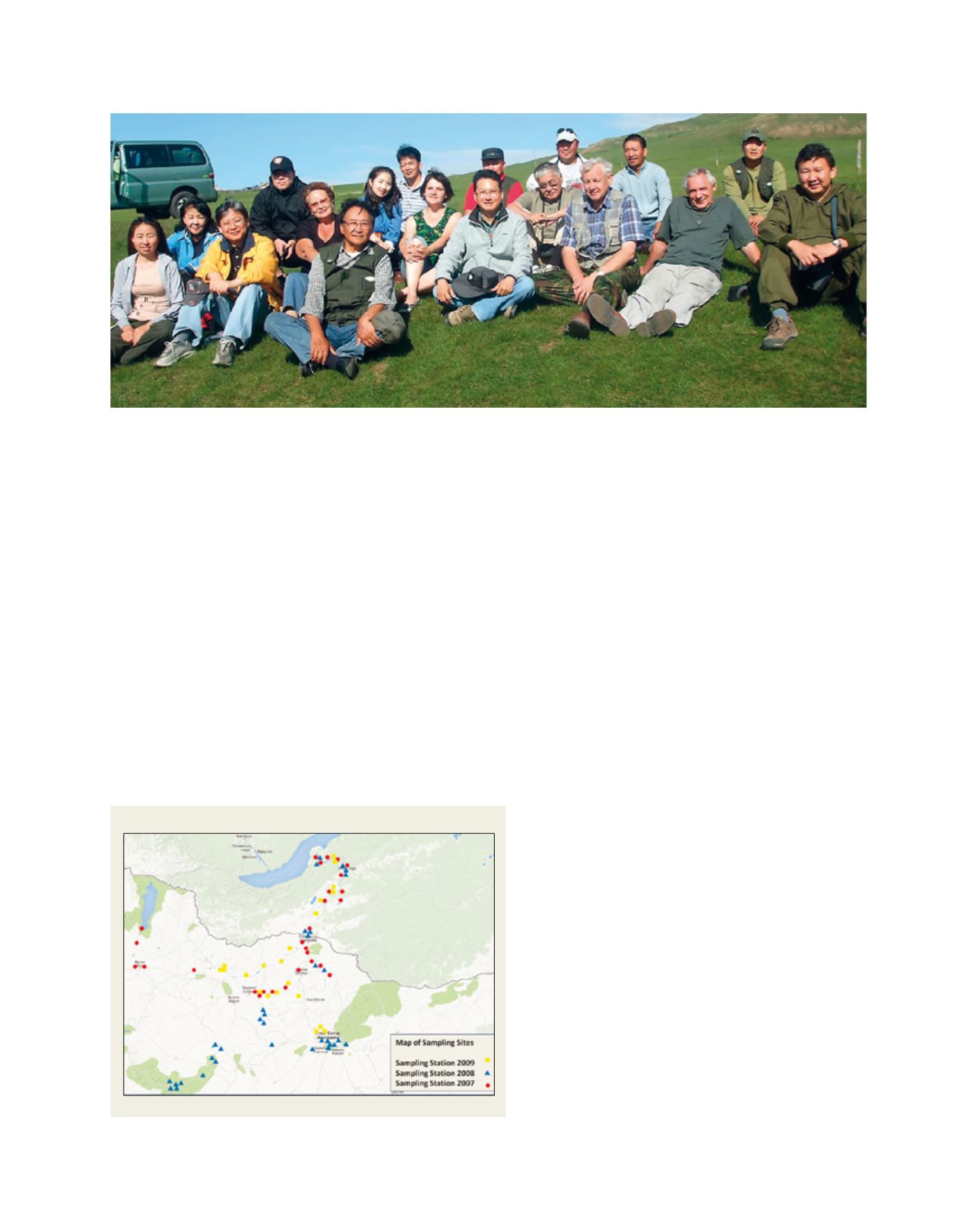

[
] 296
I
nternational
C
ooperation
on
W
ater
S
ciences
and
R
esearch
Development (NISD). These institutions play a leading
role in helping countries address the challenges of
sustainable development by enhancing information
exchange, capacity building, outreach activities and
the dissemination of publications for sustainable
development. Since the network was established, a
number of activities have been initiated by KEI.
The Selenge River Basin
One of KEI’s key NISD partnership projects is the
Integrated Water Management Model (IWMM) on the
Selenge River Basin, in collaboration with the Institute
of Geoecology of the Mongolian Academy of Science
(IGMAS), the Baikal Institute of Nature Management
(BINM) and the Siberian branch of the Russian Academy
of Sciences. The objective of the project was to build
an IWMM that could serve as an important policy tool
for sustainable management of the water source of the
Selenge River Basin. The project also aimed to contrib-
ute to the peaceful settlement of water-related disputes
on local, regional and international levels by providing
a systematic analysis of the growing problems in the
basin’s management.
The research project was conducted over three
phases. The first phase focused on collecting data to
examine the water quality of the Selenge River.
1
In the
second phase, the transboundary water management
issues between Mongolia and the Russian Federation
were analysed.
2
The final phase of the project was
aimed at the development and proposal of an inter-
national cooperation project for an IWMM for the
Selenge River Basin.
3
The project resulted in the
development of a solid research partnership between
KEI, IGMAS and BINM. Furthermore, the three years
of intensive joint research activities contributed to
the enhancement of IGMAS and BINM’s research
capacities. Currently, IGMAS and BINM are jointly
conducting follow-up activities for the transboundary
diagnostic analysis in the Baikal Basin.
2012 United Nations Conference on Sustainable Development
(Rio+20) – called for the provision of universal coverage for
safe drinking water and adequate sanitation services. The global
community is expected to meet again in 2015 to agree on the
post-2015 development agenda and define the sustainable devel-
opment goals (SDGs). In this upcoming SDG agenda, water is
expected to feature prominently.
As part of KEI’s efforts to contribute to the global community,
GSC aims to address water resource issues through coordinated
multidisciplinary research using advanced information and
networking systems. GSC is working to expand its analytical
work internationally through its partnership research. Since 2004,
KEI and the Economics and Trade Branch of the United Nations
Environment Programme have entered into agreements with a
number of institutions including national training and research
institutes, regional organizations, universities, international
organizations and non-governmental organizations with a view to
establishing a collaborative Network of Institutions for Sustainable
IWMM on the Selenge River Basin: members of the joint partnership research team
Image: KEI
A map of the Selenge River Basin project
Source: KEI, IGMAS, Baikal Institute of Nature Management


















